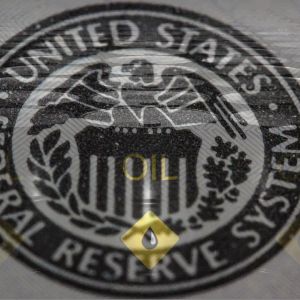Investors around the world are preparing for a sharp market selloff when U.S. stock markets open on Monday morning. The United States attacked Iran over the weekend, heightening fears of a broader conflict and pushing global oil costs higher. Traders say this sudden turn of events could quickly weigh on equity markets around the globe, as fears of retaliation from Tehran and rising energy prices intensify. The unfolding Middle East crisis is set to dominate trading this week, Reuters wrote . U.S. data on business activity, home sales and inflation are likely to receive less attention Investors are focused on how President Donald Trump’s decision to back Israel’s military action against Iran might affect sentiment, drive up inflation and influence Federal Reserve policy and expectations for rate cuts later this year. In a televised address to the nation, Trump described the strike as “a spectacular military success” and said Iran’s nuclear enrichment facilities had been “obliterated”. He warned that the U.S. military could target other sites in Iran if the country did not agree to peaceful terms. Iran quickly responded, saying it reserved “all options” to defend itself. Adding to that, Iranian lawmakers approved a measure to close the Strait of Hormuz, a vital chokepoint through which roughly 20% of the world’s oil supply flows. The move, reported by Reuters, cited the state-run Press TV. Oil price shock looms over global markets “It’s hard to imagine stocks not reacting negatively and the question is how much,” said Steve Sosnick, chief market strategist at Interactive Brokers in Connecticut. “Really what we’re looking at is secondary order effects – the price of oil, market stability, price hikes through the economy. No globally important stock is directly affected by what happened tonight.” The S&P 500 (SPX) has been trending near its February highs after recovering from an early-April selloff tied to trade tensions. The index is about 2.7% below its February closing peak and has gone 27 trading sessions without coming within 5% of that record high. Already, the Israel-Iran conflict has sent oil prices sharply upward and prompted caution among investors. So far, the energy market has absorbed most of the fallout from the turmoil, keeping equity markets relatively stable. But the risk remains that higher oil bills will feed into overall inflation and unsettle the Fed’s plan for rate cuts. On Wednesday, the Federal Reserve held its key interest rate steady and signaled that borrowing costs are still likely to fall later this year, though at a slower pace than officials anticipated in March. Policymakers cited the potential for higher inflation driven by President Trump’s tariff policies, which have loomed over markets in recent months. “The question is oil prices and what that does to inflation – which has implications for monetary policy and how long the Fed keeps rates ‘meaningfully restrictive’,” said Sonu Varghese, global macro strategist at Carson Group. Some investors see a quick resolution to Middle East tensions While many investors expect a short-term flight to safe-haven assets like the U.S. dollar and Treasury securities, some also see a chance for the crisis to cool rather than flare into a long conflict. “I think it’s going to be very positive for the stock market,” said Mark Malek, chief investment officer of Siebert Financial. He said investors had been expecting about two weeks of uncertainty after the White House warned it would take that long to decide. He said the strike felt like a one-and-done event rather than a long-drawn-out conflict. Traders will also be watching a busy economic calendar of U.S. data releases. Monday brings reports on U.S. business activity and housing sales, Tuesday features the latest consumer confidence figures, and Friday will see the Personal Consumption Expenditures Price Index. Each of these reports could shift the outlook for both stocks and policy. U.S. consumer confidence has dropped a lot recently because people feared tariffs might cause a recession and raise prices. Now that inflation is easing and the U.S. and China have paused their trade fight, investors were hoping for a rebound in sentiment before the weekend. “Remember, the survey-based data all got crushed in the March, April, May time frame … my expectation is we’re still going to see an improvement,” said Mark Hackett, chief market strategist at Nationwide. His remarks came shortly before the U.S. struck Iran and highlighted the impact of sentiment swings on markets. KEY Difference Wire : the secret tool crypto projects use to get guaranteed media coverage


















